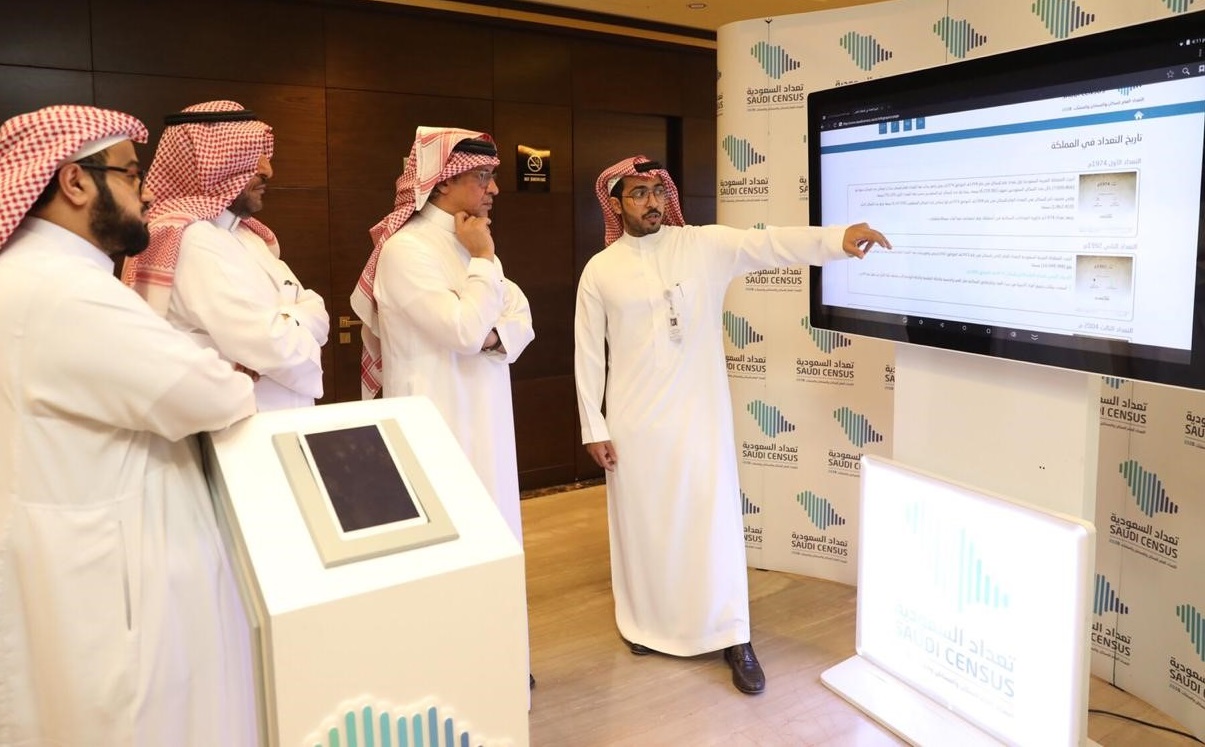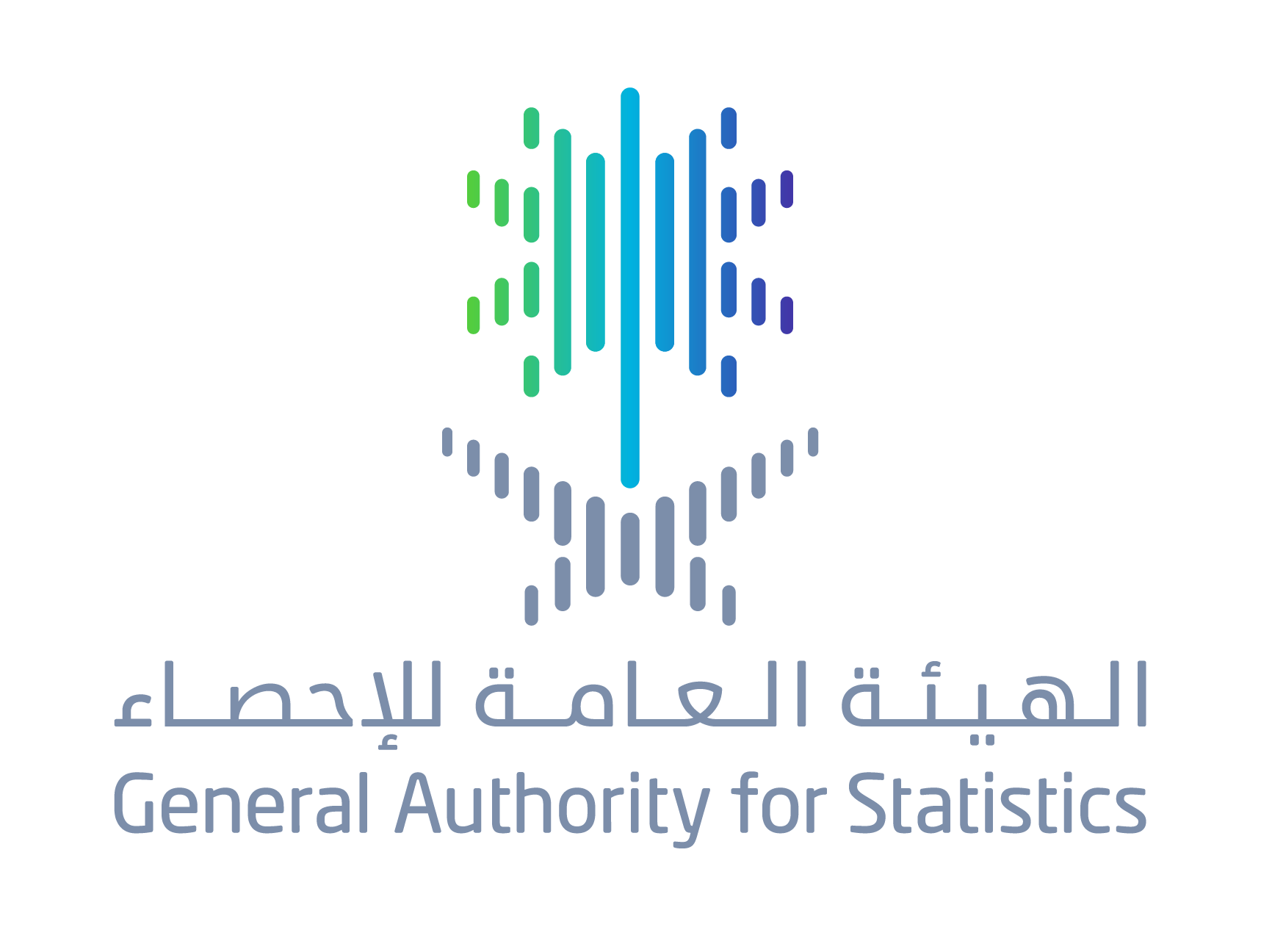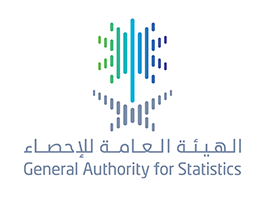
(16.8%) of Saudis contribute in voluntary works, and the average voluntary working hours of total population reached (52.2) hours during the twelve months preceding the survey
28-07-2019
Within GASTAT surveys that are implemented for the first time
(16.8%) of Saudis contribute in voluntary works, and the average voluntary working hours of total population reached (52.2) hours during the twelve months preceding the survey
On Friday Shawwal 18th 1440 H corresponding June 21st 2019, the General Authority for Statistics (GASTAT) released the results of “ Voluntary Works Survey 2018” on its official website www.stats.gov.sa . this survey is implemented kingdom-wide for the first time within the requirements of Saudi Vision 2030.
GASTAT vice president Mr. Abdullah Albatil said that this survey aims to identify the percentage of individuals’ contribution in voluntary works, provide up-to-date statistics on the percentage of volunteers out of total Saudi and non-Saudi population (males and females), and the average working hours of those volunteers. In addition, it identifies the nature of voluntary works performed by society members and the fields of practice. The survey also gives detailed data on voluntary works by occupations and economic activities. Hence, it supports decision and policy makers, researchers, and those who are interested in getting up-to-date and comprehensive statistics that are related to voluntary work in Saudi Arabia. The survey would enable both the public and the private sectors to study the variables of voluntary work to use them in preparing the future developmental, social, and economic programs in Saudi Arabia, increasing the efficiency of voluntary work, and providing the academic sectors with the requirements of social and economic studies and research. The vice president expressed his appreciation to all the concerned entities including the Ministry of Economy and Planning, the Ministry of Labour and Social Development, in addition to a number of voluntary institutions and associations for their participation in the survey questionnaire.
The results of Voluntary Work Survey 2018 showed that the percentage of total volunteers (Saudis and non-Saudis) out of total population (15 years and above) during the twelve months preceding the survey reached (14.7%). However, the percentage of Saudi volunteers (15 years and above, males and females) during the twelve months preceding the survey reached (16.8%), where Saudi males registered (22.6%) and Saudi females registered (10.8%).
According the survey results, the average working hours of total volunteers (Saudis and non-Saudis) reached (11.2) hours during the four weeks preceding the survey, whereas the average working hours of total volunteers (Saudis and non-Saudis) reached (52.2) hours during the twelve months preceding the survey. However, the average working hours of Saudi volunteers reached (11.4) hours during the four weeks preceding the survey, whereas the average working hours of Saudi volunteers reached (52.6) hours during the twelve months preceding the survey.
The results also demonstrated reasons of voluntary work for Saudis, where (40.6%) of Saudi volunteers (males and females) said that the desire to help others motivates them to volunteer. (28.7%) said that volunteering is a national obligation, whereas (8.5%) of Saudi volunteers think that volunteering is a good opportunity for communication. However, (4.3%) believe that volunteering contributes in developing one’s skills.
It is worth mentioning that the survey has covered all voluntary work fields which include any unpaid work performed by an individual in public social activities or for a certain governmental or private organization covering all humanitarian works such as providing people in need with support and donations which helps improving their lives. Saudi Arabia is well known for its volunteering works during Hajj and Umrah seasons.

GASTAT Launches “Self-enumeration System” and e-portal for Saudi Arabia’s 2020 Census
18-06-2019
GASTAT Launches “Self-enumeration System” and e-portal for Saudi Arabia’s 2020 Census
Minister of Economy and Planning and Chairman of the Board of Directors of the General Authority for Statistics (GASTAT) Muhammad Bin Mazyad Al-Tuwaijri launched on Mondy 14/10/1440H (June 17th ,2019) the e-portal for Saudi Arabia’s 2020 census, as an awareness platform for everything related to the fifth census of housing, populations, and establishments 1440H-2020 through its official websites www.stats.gov.sa
A detailed presentation for the e-portal including its objectives as well as the preparations of the census was reviewed by HE. In fact, the e-portal of Saudi census 2020 is an official platform for all census’s news and everything related to it including announcing and publishing results, it is also a platform for spreading statistical awareness in general, deputy of GASTAT for strategic communication and clients support Taiseer AL-Mofarrej said.
The e-portal has special windows for the past four censuses and their results, it also includes windows for news and awareness content that shed light on the preparations made until now for Saudi Arabia’s 5th census, AL-Mofarrej clarified. He also added that citizens and expatriates will be able to complete the census form online through (self-enumeration system) via the website on March 2020, which is considered one of the most important modern methods for population census, as it will enable heads of the households to register all data of the family without the need for the visit of the statistical researcher to their places. This system will be used as one of the tools to collect statistical data from households in Saudi Arabia’s census 2020. On the other hand, spreading the statistical awareness among the society will lead to success of the self-enumeration experience since knowledge of technology is now considered as a feature of the Saudi society in all age groups, he added.
It is worth mentioning that the Council of Ministers has approved the implementation of the General Population and Housing Census for 2020 as the fifth census of Saudi Arabia. Tuesday’s evening, 22 Rajab 1441 (17 March 2020) will be the beginning of the actual enumeration for the 5th census of population and housing in Saudi Arabia. This date shall be the approved date for the time reference of all census works, data and information.
2020 census will provide a huge database that will be used as a reliable reference to conduct studies and researches required by the development plans and programs in Saudi Arabia, in addition to statistical data and indicators for measuring the change in the characteristics of population that occurred by time, also to make international, regional, and local comparisons, as well as reviewing and evaluating future estimates of population.
Saudi Arabia has implemented the first official census in its comprehensive sense in 1394 AH (1974). The second census was in 1413H (1992). The third census was conducted in 1425H (2004). 1431H (2010) census was the fourth census and was carried out by the Department of Statistics and Information before being transformed into the General Authority for Statistics.

Saudi Arabia concludes its participation in the first meeting of the friends of the chair group on economic statistics of the United Nations within 11 countries
12-06-2019
GASTAT provides development opportunities through big data
Saudi Arabia concludes its participation in the first meeting of the friends of the chair group on economic statistics of the United Nations within 11 countries
On Thursday May 30, 2019, Saudi Arabia, represented by the General Authority for Statistics (GASTAT), concluded its participation in the first meeting of the friends of the chair group on economic statistics of the United Nations within 11 countries, which was held at UN headquarter in New York city. The three-day meeting discussed the institutional transformation issues of national statistical bodies, in addition to the new methods, services and roles played by such statistical agencies.
GASTAT president, Dr. Fahad bin Sulaiman Altekhaifi, who led the Saudi delegation, confirmed that GASTAT 's participations with international organizations and experts of the international statistical agencies in their meetings are useful opportunities to highlight KSA's efforts in development with statistical figures and to develop statistical work according to international standards. Altekhaifi said statistical offices are challenged by changes in data gathering brought about by new technology. He added that big data could replace traditional statistical activities as an innovative way of producing official statistics or providing additional information to support the currently available official statistics, hence new indicators might be produced to support all decision makers in different developmental fields. The shift towards big data to be one of GASTAT official statistics sources reflects Saudi Arabia tendencies to benefit from the digital transformation in producing economic, social, and cultural statistics that support government bodies in accepting the rapid developmental changes which must be applied and reflected through official statistics.
GASTAT president indicated that using big data as a new (complementary or alternative) source of data creates some challenges that should be overcome by statistical entities. These challenges include the methodological aspects of data, determining data access methods, unifying statistical concepts, completing and processing data and other practices, in addition to ensuring a certain level of quality and enabling international comparisons. However, the organizational factors include other fields such as updating the organizational structure, working on statistical capacity development, establishing collaborations with the private and public data sources, and communicating with users.
Altekhaifi mentioned that the national statistical agencies must overcome these challenges to guarantee the usefulness of big data in the production of official statistics, especially for databases, computing and digitization. Statistical entities need to adopt national statistical strategies that deal with plans, strategies, implementation methods and development mechanisms in the national statistical environment. In addition, they need to enhance coordination and partnerships between the national statistical agencies and the different sources of data, whether governmental or private. However, all databases of government and private statistical entities must be electronically linked, while maintaining the confidentiality and privacy of data when exchanging data. Furthermore, statistical indicators definitions, concepts, and methodologies must be unified among all partners to avoid misunderstandings of statistics that result from the use of different concepts and methodology. This includes the use of official international statistical classifications such as ISIC 4 by all partners from the public and private sectors to facilitate work on databases and get coordinated and comparable data that are ready for all statistical purposes. Moreover, it is important for all statistical entities to have a road map through which they can use big data to provide official data.
GASTAT has reviewed all Saudi Arabia’ efforts to benefit from big data by approving the National Strategy for Statistical Development, electronic linkage projects, and international classifications. In addition to unifying the definitions and methodologies, and encouraging the initiatives of digital transformation in all public and private sectors.
It is worth mentioning that many international experts in the statistical and economic fields have participated in the discussions of the first meeting of the friends of the chair group on economic statistics of the United Nations. Topics discussed included the future of economic statistics within the Sustainable Development Goals from the perspectives of the international organizations and the national statistical entities. They also included digital infrastructure, and maintaining an interactive economic system, in addition to discussing a number of experiments on the institutional transformation of the national statistical offices, and methods of using data sources.

GASTAT Releases Results of Umrah Statistics Bulletin (2018)
14-05-2019
GASTAT Releases Results of Umrah Statistics Bulletin (2018)
On Tuesday 2nd of Ramadan, 1440H corresponding May 7, 2019, General Authority for Statistics (GASTAT) released the results of Umrah Statistics Bulletin (2018). The report contains a number of Umrah-related indicators and results which have been taken from Umrah Survey (domestic Umrah performers), and the registered- based data of the Ministry of Hajj and Umrah (foreign Umrah performers).
The total number of Umrah performers reached (18,311,111) performers, (6,765,614) of whom are from outside Saudi Arabia as showed in the registered- based data of the Ministry of Hajj and Umrah. On the other hand, the total number of domestic Umrah performers (Saudis and non-Saudis) hit (11,545,497) performers. The percentage of Umrah performers for Saudis as well as non-Saudis coming from inside Saudi Arabia recorded (46.17%) and (53.83%), respectively, according to the Umrah Statistics Bulletin’s results.
Vast majority of domestic Umrah performers (Saudis and residents) carry out Umrah within one day, with a percentage of (67.5%) out of the total number of Umrah times they performed during 2018. However, they prefer to perform Umrah during Ramadan, where their percentage accounted for (59%), the Umrah Survey’s results showed.
King Abdulaziz International Airport in Jeddah registered the highest percentage regarding foreign Umrah performers with (62%), while the percentage of Umrah performers coming through Prince Mohammad bin Abdulaziz International Airport in Medina was (29.31%).
It is worth mentioning that all the Umrah Survey’s data are available on GASTAT’s website www.stats.gov.sa, to serve researchers and those who are interested in such data, and to provide decision makers with detailed field results.